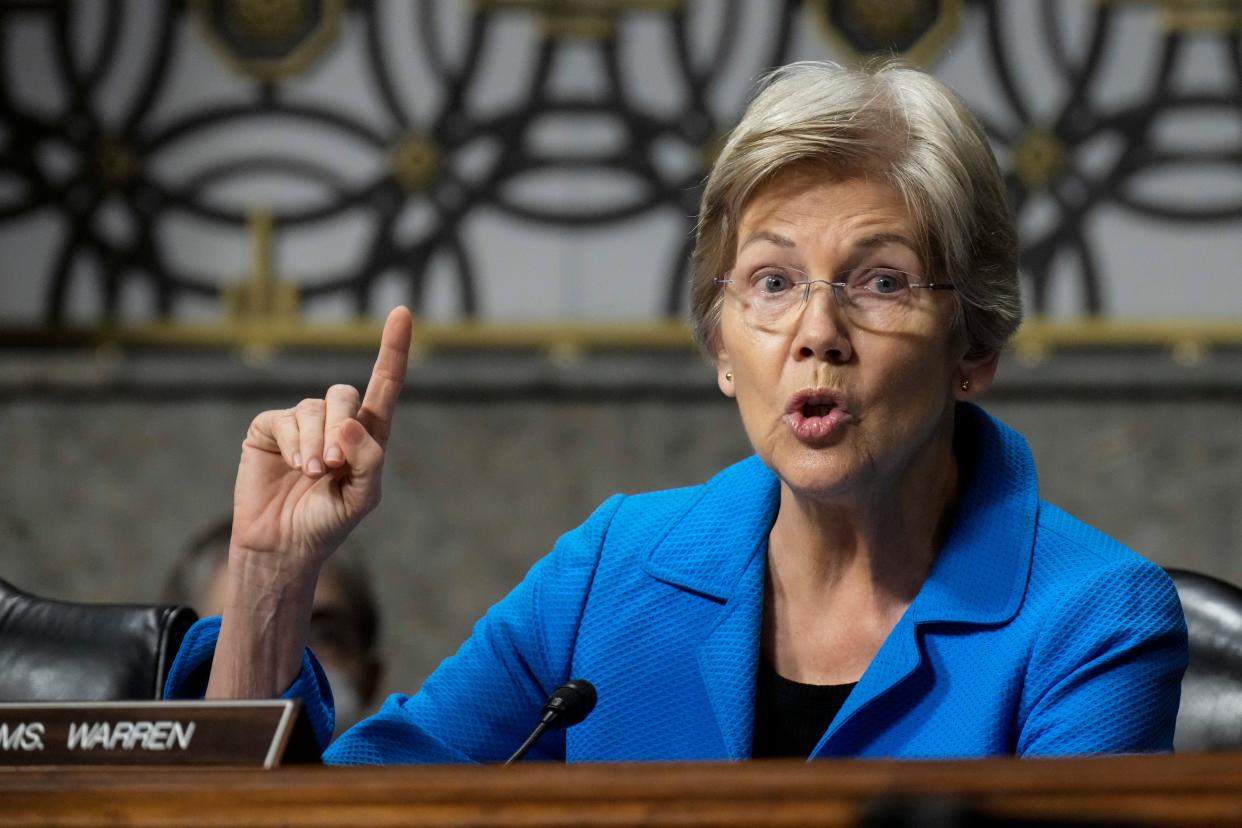These Democrats are trying to raise taxes on the wealthiest Americans. Here's what they want.
WASHINGTON — A group of progressive lawmakers is renewing a push to raise taxes on the wealthiest Americans and generate trillions of dollars – with an eye toward paying for national programs.
The proposal, reintroduced Tuesday, would implement a 2% tax on households worth $50 million to $1 billion and a 3% tax on households worth more than $1 billion.
It would affect the wealthiest 100,000 households in the country – around 0.05% of the population – according to Sen. Elizabeth Warren, D-Mass., who's sponsoring the bill in the Senate. The Wharton Budget Model at the University of Pennsylvania estimated the proposal would generate $2.7 trillion over the next decade.
It also includes multiple provisions to prevent people from dodging the tax, including $100 billion to the Internal Revenue Service's auditing efforts. The push also includes a 40% "exit tax" on people worth more than $50 million if they choose to dump their citizenship to avoid paying.

Warren's bill is supported by five other Democratic senators, 27 Democratic House lawmakers, and Sen. Bernie Sanders, I-Vt. It's led in the House by Progressive Caucus Chair Pramila Jayapal, D-Wash., and Rep. Brendan Boyle, D-Pa.
The legislation has little chance of passing through the GOP-controlled House. But it reflects a persistent effort among Democrats to force wealthy people to pay more for the government programs and reduce the widening gap between the richest Americans and everybody else.
During his State of the Union address, President Joe Biden once again pledged to raise taxes on the wealthy and large companies. His budget proposal released earlier this month included a 25% tax on the top 0.01% of Americans, which covers those with wealth of more than $100 million.
Biden's plan would also reverse the corporate tax rate cut put in place under former President Donald Trump, in addition to increasing the minimum tax on the largest corporations from 15% to 21%.
"As President Biden says: no one thinks it’s fair that Jeff Bezos gets enough tax loopholes that he pays at a lower rate than a public school teacher," Warren said in a statement to USA TODAY. "All my bill is asking is that when you make it big, bigger than $50 million dollars, then on that next dollar, you pitch in two cents, so everyone else can have a chance."
Warren's bill – dubbed the "Ultra-Millionaire Tax Act" – was first introduced in 2019 and became a major part of her 2020 bid to be the Democratic presidential nominee. The idea proved popular: Nearly 70% of likely voters said they supported it in a 2021 poll from left-wing think tank Data for Progress. Sixty-three percent of Americans said they approved of the idea in a 2019 survey from The New York Times.
Biden didn't pursue Warren's idea when he got into office, but he did throw his weight behind the idea of redistributing the tax burden. For example, the Inflation Reduction Act, passed in 2022 included a 15% minimum tax on corporations.
Notably, Biden also unsuccessfully proposed a corporate tax rate hike from 21 to 28% in 2021 – when Democrats controlled both the House and Senate.
Republicans have often opposed such proposals, arguing that increased tax burdens on businesses would hurt the economy and, by extension, average Americans. The Wharton Budget Model estimated Warren's proposal would reduce GDP by 1.2%, and concerns about America dipping into a recession have flared in recent years.
The progressive proposals provide a backdrop to debates over wealth and inequality as Biden and Trump prepare to face off in the 2024 presidential election. Many of the tax cuts passed through the 2017 Trump-supported tax bill are set to expire at the end of 2025, meaning the next president will have to determine what happens to an estimated $4 trillion worth of tax cuts.
This article originally appeared on USA TODAY: Elizabeth Warren, Dem lawmakers want raise taxes on richest Americans
